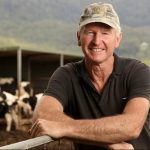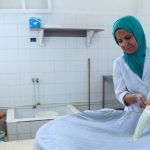
Indonesia’s child nutrition plans may mean a lift in demand for NZ dairy.
A new Indonesian school milk programme is expected to significantly increase the country’s total dairy consumption, creating opportunities for New Zealand and other global dairy players, according to a new report by food and agribusiness banking specialist Rabobank.
Rabobank said the recently elected Indonesian government has introduced a range of policy measures with the potential to transform the country’s dairy supply chain.
“The centrepiece of its policy is the Nutritious Meals Programme, which aims to combat malnutrition and promote healthy eating among school children,” report author RaboResearch senior analyst Michael Harvey said.
“A key feature of this programme is to provide food, including milk, to 60 million students on every school day by 2029. RaboResearch estimates the total milk required at full implementation could surpass 2 billion litres.”
The report says the ambitions behind Indonesia’s school milk programme have the potential to significantly increase Indonesian demand for liquid milk.
“The majority of milk consumed by Indonesia’s 280 million people in 2024 was imported, with domestic production estimated at 900 million litres, and an additional 2.5 billion litres (liquid milk equivalent) imported,” Harvey said.
“To meet the growth in demand that will result from the programme, the government and industry plan to significantly increase the national dairy herd.”
Harvey said for Indonesia to achieve its ambitious milk supply growth targets and accommodate the considerable number of dairy cattle needed, it will need to scale up both live cattle supply and the local dairy supply chain.
New Zealand has grown its market share in Indonesia’s skim milk powder market in recent years, and the new programme could create opportunities to further lift dairy exports to Indonesia, he said.
“Even before the announcement of the school milk programme, Indonesia was viewed as a dairy market with long-term high growth potential and, in 2020, Fonterra announced plans to further invest in Indonesia by enhancing its blending and packing capabilities,” he said.
Harvey said the new school milk programme could also create live cattle export opportunities for New Zealand given Indonesia’s desire to expand its domestic dairy cattle herd.
“Historically, New Zealand had a large dairy cow/ heifer export business, exporting on average 90,000 head annually. However, a ban was implemented in 2023 following several maritime incidents,” he said.
“Public consultation on a repeal of the ban is currently underway and, should this ban be reversed, it’s likely Indonesia would provide a viable market for New Zealand live dairy exports.”
You can now read the most important #news on #eDairyNews #Whatsapp channels!!!
🇺🇸 eDairy News INGLÊS: https://whatsapp.com/channel/0029VaKsjzGDTkJyIN6hcP1K























